2018 Toyota 4Runner Tires, Repair & Service
Get Started
Complete Auto Care for Your 2018 Toyota 4Runner
-
TIRES FOR YOUR 2018 Toyota 4Runner View Tire Info GET TIRE PRICING
-
REPAIR FOR YOUR 2018 Toyota 4Runner View Repair Info SCHEDULE REPAIR
-
MAINTENANCE FOR YOUR 2018 Toyota 4Runner View Maintenance Info SCHEDULE MAINTENANCE
-
OFFERS FOR YOUR 2018 Toyota 4Runner Limited Time Tire Offers VIEW ALL COUPONS
2018 Toyota 4Runner Tires
Recommended Tires | Tire Information
2018 Toyota 4Runner Tires Sizes, Speed Ratings, and Inflation
Not sure about your 2018 Toyota 4Runner tire size? Use the following chart to find information on tire size, speed rating, and inflation.
| Trim Level | Speed Rating | Inflation in PSI F/R | Tire Size |
|---|---|---|---|
| 2018 Toyota 4Runner TRD Off-Road | S | 32 PSI/32 PSI | P265/70R17 |
| 2018 Toyota 4Runner SR5 Premium | S | 32 PSI/32 PSI | P265/70R17 |
| 2018 Toyota 4Runner TRD Off-Road Premium | S | 32 PSI/32 PSI | P265/70R17 |
| 2018 Toyota 4Runner Limited | H | 32 PSI/32 PSI | P245/60R20 |
| 2018 Toyota 4Runner TRD Pro | S | 32 PSI/32 PSI | P265/70R17 |
| 2018 Toyota 4Runner SR5 | S | 32 PSI/32 PSI | P265/70R17 |
|
2018 Toyota 4Runner TRD Off-Road Speed Rating: S Inflation F/R: 32 PSI/32 PSI |
|
2018 Toyota 4Runner SR5 Premium Speed Rating: S Inflation F/R: 32 PSI/32 PSI |
|
2018 Toyota 4Runner TRD Off-Road Premium Speed Rating: S Inflation F/R: 32 PSI/32 PSI |
|
2018 Toyota 4Runner Limited Speed Rating: H Inflation F/R: 32 PSI/32 PSI |
|
2018 Toyota 4Runner TRD Pro Speed Rating: S Inflation F/R: 32 PSI/32 PSI |
|
2018 Toyota 4Runner SR5 Speed Rating: S Inflation F/R: 32 PSI/32 PSI |
* Note: these models have different tire sizes depending on vehicle options.
Recommended Tires for Your 2018 Toyota 4Runner
What tires are best for a 2018 Toyota 4Runner? Check out the following tire brands and types.
 ALENZA AS ULTRA
ALENZA AS ULTRA
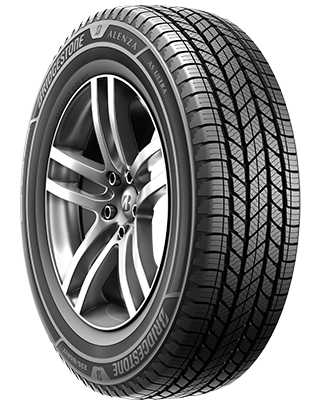
- No warranty
- All-Season
- Light Truck Tires
 Dueler H/T 684 II
Dueler H/T 684 II
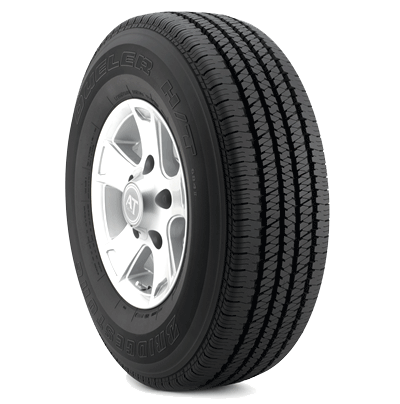
- Platinum Pact Limited Warranty
- All-Season
- Light Truck Tires
 Blizzak DM-V2
Blizzak DM-V2
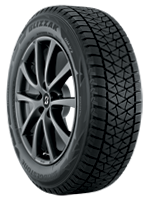
- No warranty
- Winter
- Winter
 Dueler A/T Revo 3
Dueler A/T Revo 3
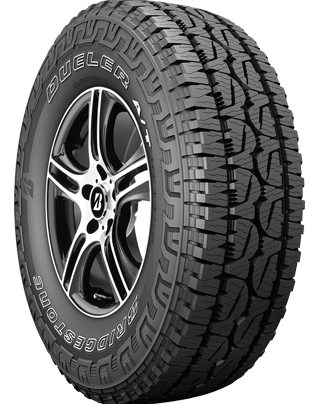
- Platinum Pact Limited Warranty
- All-Season
- Light Truck Tires
 Dueler A/T Revo 3 - LT
Dueler A/T Revo 3 - LT
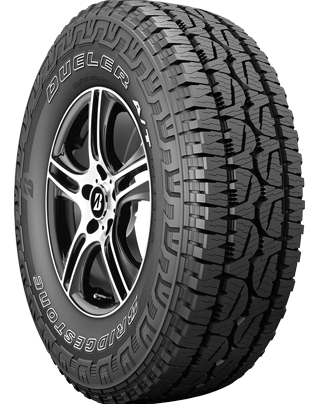
- Platinum Pact Limited Warranty
- All-Season
- Light Truck Tires
 Dueler A/T RH-S
Dueler A/T RH-S
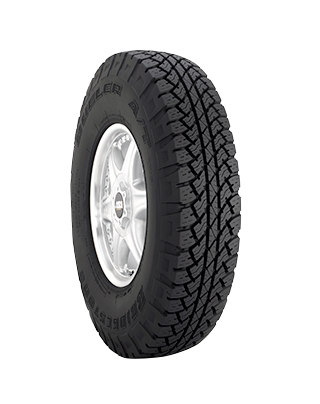
- Platinum Pact Limited Warranty
- All-Season
- Light Truck Tires
 Destination A/T2
Destination A/T2
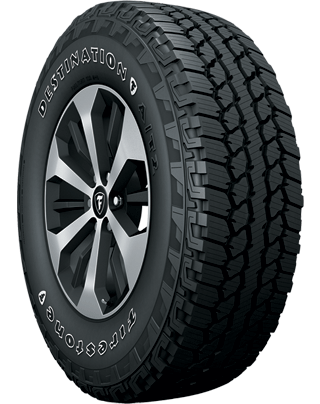
- Gold Pledge Limited Warranty
- All-Season
- Light Truck Tires
 Destination LE3
Destination LE3
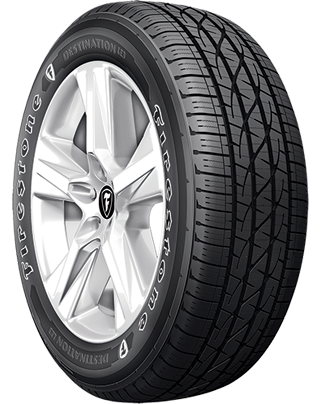
- No warranty
- All-Season
- Light Truck Tires
 Destination X/T
Destination X/T
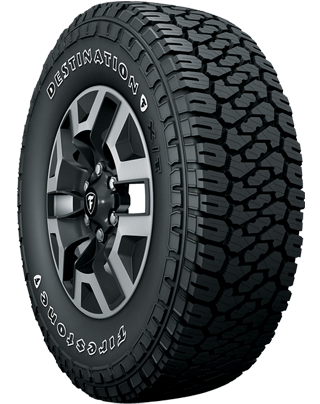
- Gold Pledge Limited Warranty
- All-Season
- Light Truck Tires
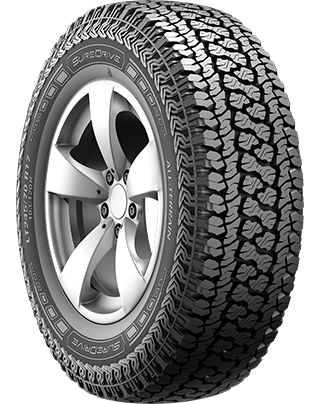
- No warranty
- All-Season
- Light Truck Tires
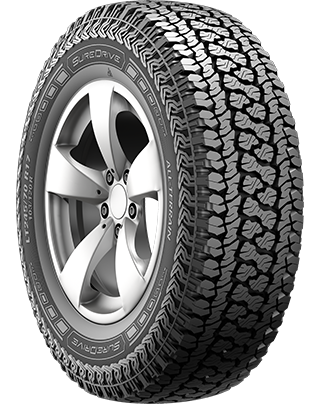
- No warranty
- All-Season
- Light Truck Tires
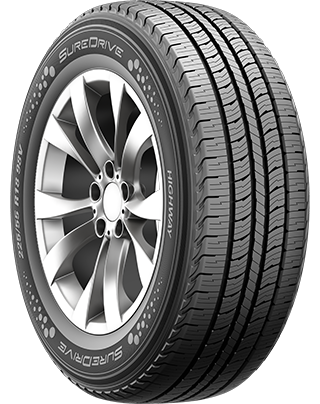
- No warranty
- All-Season
- Light Truck Tires
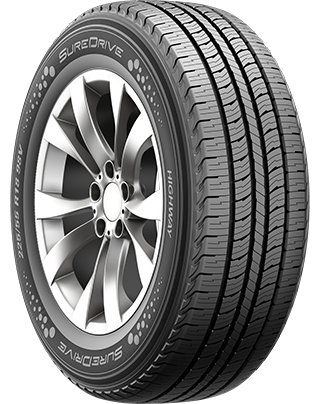
- No warranty
- All-Season
- Light Truck Tires
 OPEN COUNTRY A/T III
OPEN COUNTRY A/T III
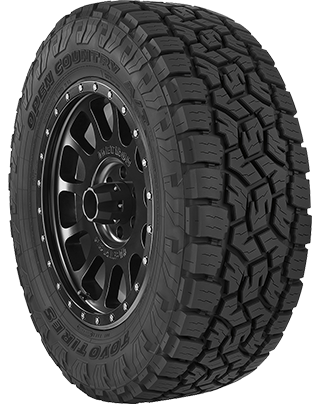
- No warranty
- All-Season
- Light Truck Tires
2018 Toyota 4Runner Tire Information
Beyond the correct tire size, there are a couple of other factors to consider when buying Toyota 4Runner tires like where and how you drive, and what tire brand you trust most. Think about where you live (countryside vs. city vs. mountains) and the kind of unexpected weather you're likely to experience when evaluating your driving conditions. It's not uncommon for drivers in states that experience all four seasons to buy more than one set of tires. one set for winter, one set for summer. Other drivers buy one set of all-season tires instead. That way they don't have to return to the tire shop and their vehicle is always ready for sun, rain, and light snow!
Driving style is next on the list to think about when buying tires. If you're a big off-roading fan who forges paths where others can't, you have very different needs than a long-distance commuter who sticks to the highway. Browse Toyota 4Runner tires online or come to your nearby Firestone Complete Auto Care for help selecting the tire that's right for you.
Installing Toyota 4Runner Tires
We sell tires, but we also service them and care for all the around-the-wheel components. We're your tire shop and a complete service center for tire installation, maintenance, repair, rotation, and alignment! Buy 2018 Toyota 4Runner tires online and schedule your installation when it's convenient for you.
2018 Toyota 4Runner Tire Questions
-
Why check Toyota tire inflation? Even a tiny decrease in tire pressure could impact your safety and fuel economy. Maintaining proper tire pressure can help increase fuel economy, improve braking time, and boost tire lifespan.
-
What do the tire sidewall numbers mean for my Toyota 4Runner? Your tire sidewall numbers tell you the recommended load carrying capacity, speed rating, treadwear, traction, and tire size. Talk to a tire technician to learn how to read Toyota tire numbers.
-
How do I check the tread depth on my Toyota tires? Stay on top of your tire tread depth to help avoid a dangerous drive. You can check tread depth with a penny. Hold the penny so that Abraham Lincoln is facing you, then place your penny into a tread groove upside down. If you can see the top of Abe’s head, your tread is shallow and it might be time for new Toyota 4Runner tires. Grab a penny. Hold the so that Abe Lincon's head is facing you and his hair is pointing toward the ground. Then, place the penny into a tread groove. If you can see the top of Abe’s head, your tread is shallow and it might be time for new Toyota 4Runner tires.
Types of 2018 Toyota 4Runner Repairs
How do I learn more about auto repairs? Click on a service below to read about the types of Toyota 4Runner repairs we do at Firestone Complete Auto Care.
Get Repairs for Your 2018 Toyota 4Runner
For most drivers, the words “car repair” don’t exactly spark excitement. We’re here to change that, though. At Firestone Complete Auto Care, we want to make car repair painless and hassle-free. Bring your 2018 Toyota 4Runner in for repair services and our technicians will take care of your 4Runner like it was their own. Before we begin any repair work, we’ll diagnose any issues and answer your questions about potential repair options. We’ll never recommend a repair we don’t think is necessary for your safety or the performance of your Toyota.
How Much Does Toyota 4Runner Repair Cost?
Several factors can affect the cost to repair your 2018 Toyota 4Runner, including the type of repair, costs of replacement parts or repair supplies, the labor involved, and where you live. We update them regularly to keep our deals fresh!
A few different aspects can influence repair costs for your 2018 Toyota 4Runner, like
2018 Toyota 4Runner Auto Repair Questions
-
Do I need to follow Toyota's maintenance schedule? One of the best ways to prevent 2018 Toyota 4Runner repairs is by staying on top of your Toyota maintenance schedule. This schedule is written by the people who made your vehicle and they know best how to keep it running smoothly.
-
Should I bring my Toyota in even if I can't pinpoint the problem? You’re in your car, day in and day out. So, it’s only expected that you know your car better than anyone else! If you notice mysterious smells, strange engine noises, or other out-of-the-ordinary symptoms while driving, trust your instincts and stop into Firestone Complete Auto Care for a Courtesy Check. Catching a potential issue early could help prevent Toyota 4Runner repairs.
-
Are the repairs you recommend for my Toyota actually needed? Trust is more than just a saying on the wall. It’s a window underneath it. That’s why we won’t recommend services or repairs for your 2018 Toyota 4Runner unless we think they’re vital to your safety on the road.
Brake Repair for Your 2018 Toyota 4Runner
Your Toyota 4Runner may be powered by a strong engine. But if you can’t brake, it might as well be scrap metal. If you notice your brakes are squeaking or not working well, don’t wait! Safe driving and responsive brakes go hand in hand. Plus, waiting can lead to more expensive parts wearing out and requiring replacement. Visit Firestone Complete Auto Care for the right brake repair for your 2018 Toyota 4Runner. We offer a variety of brake services like pad/shoe replacement, brake rotor/drum resurfacing, brake fluid exchange/bleeding, and brake caliper and wheel cylinder installation.
Toyota 4Runner Brakes Questions
-
Why is my 4Runner shaking as I brake? Feeling shaking or vibrating in your 4Runner as you brake might indicate a few different problems, including worn brake pads or rotors, loose suspension components, damaged brake calipers, or warped rotors. Book an appointment for a free brake inspection as soon as you notice a problem with your brakes.
-
How long should my 4Runner brake pads last? Brake pads typically last about 30,000 to 40,000 miles. However, driving conditions can affect this range. Sticking to highway driving and braking smoothly can help extend the life of your brake pads, while towing heavy loads or frequently riding your brakes can shorten it.
-
Is it bad if my 4Runner is leaking brake fluid when off? Your 4Runner brake system is a closed hydraulic system, which means that the brake fluid should not leak out of the system under normal circumstances. However, over time, the various components of the brake system can wear out or become damaged, which can cause brake fluid to leak out of the system.
Repairing Your Toyota 4Runner Drivetrain
Drivetrains for front, rear, and all-wheel-drive and 4WD vehicles are not all the same. You don't want to go to any random shop for drivetrain repair. You want to come see the technicians at Firestone Complete Auto Care. We can help repair all of your 2018 Toyota 4Runner drivetrain components Your Toyota could be crying out for driveshaft repair if you notice clunks when shifting, vibration as your vehicle accelerates, resistance when turning, or heavy vibrations in your floorboards.
2018 Toyota 4Runner Drivetrain Q&A
-
What are the symptoms of a damaged Toyota drivetrain system? Your Toyota 4Runner drivetrain might be damaged if you notice strange noises from the rear of your vehicle, see fluid leaking, or have issues turning.
-
What triggers the malfunction indicator light (MIL) in a 4Runner? A multitude of problems can activate your 4Runner’s malfunction indicator light (better known as the check engine light), including issues with the engine, transmission, sensors, electrical system, or connectors.
-
How concerning is a drivetrain malfunction in my 4Runner? If your 4Runner has a drivetrain malfunction, don't wait. Get it checked out by a professional mechanic. Identifying the underlying cause and performing the appropriate repairs right away can help prevent further damage and avoid unsafe driving conditions.
2018 Toyota 4Runner Alignment Services
An alignment involves making adjustments to your Toyota 4Runner's suspension system, which connects the wheels with the rest of the vehicle. When your car has an alignment service, the individual angles of your tires are adjusted so that they come into contact with the road in just the right way — the way Toyota intended them to. When you bring in your 2018 Toyota 4Runner, we’ll perform an alignment check first. If needed, we'll adjust your wheel alignment angles to match Toyota recommendations.
Toyota 4Runner Alignment Questions
-
What can knock my Toyota 4Runner out of alignment? When it’s safe to do so, avoid driving over potholes or hitting curbs. These road obstacles can wreak havoc on your wheel alignment, as can wear and tear from rough road conditions.
-
How often should you get a wheel alignment for your 4Runner? Check your 4Runner owner's manual for Toyota's recommended interval. It's generally a good idea to check your alignment every 6,000 miles or 6 months, depending on which comes first.
-
Does getting new 4Runner tires mean you need an alignment? It’s not mandatory to get an alignment after installing new tires on your 4Runner, but it can be a smart decision! Proper alignment from the jump can help improve handling, fuel efficiency, and tire wear.
Engine Repairs for Your 2018 Toyota 4Runner
When your Toyota 4Runner engine needs repairs, our technicians will provide you with a thorough explanation beforehand. We make recommendations, but you make the final decision. If a service can wait, we’ll make sure you know. We'll also tell you if it's necessary for your safety. We want to provide you with the information you need to make an informed engine repair decision. Turn to Firestone Complete Auto Care for your 2018 4Runner engine repairs and you can feel confident knowing that we use Toyota-approved parts and components like the timing belt, engine oil seal, sensors, or another part.
Engine Q&A 2018 Toyota 4Runner
-
Why does the check engine light in my 4Runner turn on when I start my car? It's okay if your check engine light comes on when you first start your vehicle. This is a sign that your vehicle is testing its circuits. The light should go off shortly. Bring your vehicle in if it doesn't.
-
Why is my Toyota 4Runner making engine noise? Strange under-the-hood noises can point to problems within your Toyota 4Runner engine. Tapping or knocking could mean you need an oil change. Whistling sounds could mean you have an intake leak or misaligned belt. Squealing may be caused by a loose fan belt, and grinding could be a sign that something is wrong with your brakes — not the engine.
-
What could damage my Toyota 4Runner engine? Some driving habits are not so great for your engine. These include driving on a near-empty gas tank, flooring the gas pedal while the car is in Park, or accelerating too quickly, too soon. Protect your engine’s performance and efficiency by distancing yourself from these habits.
2018 Toyota 4Runner Tire Repair
Firestone Complete Auto Care is here for you when your 2018 Toyota 4Runner needs flat tire repair or inspection. In some cases, a tire doesn’t have to be replaced – it can be plugged and patched with a simple repair. Depending on the damage, though, a repair might not be the right move. Our technicians can determine which option is best for your situation. To start, we’ll consider the location of tire damage, the type of issue, the size and scope of the damage, and the amount of wear on your tires.
If we determine that your 2018 Toyota 4Runner tire can be safely repaired, the repair process is actually fairly simple: (1) Take the tire off the wheel for easy inspection, (2) fill the puncture to keep the moisture out, and (3) secure and seal the inner tire liner to ensure the tire is airtight.
Your Questions About Toyota 4Runner Tire Repair, Answered
-
What happens if I drive my Toyota on a flat tire? Driving on a flat or underinflated tire can put extra stress on your wheels and alignment. While it’s sometimes necessary to drive a short distance on a flat tire to get to a safe place, don’t take any other trips in your 4Runner until you can have the flat tire repaired or replaced.
-
Is temporary sealant bad for my Toyota's tires? A temporary sealant may be able to help you get to a repair location safely. But temporary or emergency sealants could possibly damage TPMS sensors, and in some cases may even void the warranty on your Bridgestone or Firestone tires. If your tire needs extensive repair, sealant can add time and labor costs to the process.
-
Why do the tires on my 4Runner keep losing air? If your 4Runner tires are always losing air, you may have a puncture, damaged wheel, or leaking valve stem.
2018 Toyota 4Runner Maintenance
You want your Toyota 4Runner to last as long as possible. If you put in the effort to keep up with proper maintenance, you could hit 200,000 miles (or beyond!) in your 4Runner.
2018 Toyota 4Runner Maintenance Schedule
What is the manufacturer recommended maintenance schedule for a 2018 Toyota 4Runner? Find maintenance info for your vehicle.
Guide to 2018 Toyota 4Runner Scheduled Maintenance
Instead of waiting for an issue to arise with your 4Runner, you can stay ahead of problems before they even begin. Just follow your 2018 Toyota 4Runner maintenance schedule! Toyota knows your vehicle inside and out (they made it, after all!), so they’ve designed this schedule with your car’s unique needs in mind. Driving conditions, climate variations, and other variables can affect which scheduled maintenance services you’ll need; in most cases, though, recommended maintenance will consist of services like fluid exchanges, filter changes, new brake pads, oil changes, and tire rotations. Staying on track with routine service appointments can help your 4Runner perform better, decrease your risk of dangerous malfunctions on the road, and help you avoid expensive repairs caused by 2018 Toyota 4Runner problems later.
Essential Maintenance to Keep Your 2018 Toyota 4Runner Running Newer, Longer
Head to your nearest Firestone Complete Auto Care in your 2018 Toyota 4Runner for factory-recommended routine maintenance and a skilled technician will start the appointment with a Courtesy Check. A Courtesy Check helps "set the stage" for your service and catch any small problems before they turn into big repairs. Every Courtesy Check will include a visual inspection of your 4Runner. We’ll check your head and tail lights, fluid levels, filters, tires (and their alignment!), and windshield wiper blades. We’ll also perform a free battery check to determine your battery’s charge level.
Firestone Complete Auto Care is your one-stop shop for 2018 Toyota 4Runner maintenance and repairs. Don’t wait until something goes wrong with your car. Visit your nearest location for proactive maintenance today.
Questions About 2018 Toyota 4Runner Maintenance
-
What should I do after hitting a pothole in my Toyota 4Runner? Check your car for pothole damage! If you’ve recently hit a pothole (or even if you don’t remember hitting one… they can be sneaky!) check your tire treads, tire sidewalls, and wheels for damage. Potholes can also knock your car out of alignment, so have your alignment checked if you suspect you’ve driven over a rough patch of road lately.
-
When does my Toyota 4Runner need high mileage oil? Do you have more than 75,000 miles on your Toyota 4Runner? If so, request to switch to high mileage oil at your next oil change. This type of oil is specially formulated to keep aging engine parts in the best possible condition.
-
Can Toyota dashboard warning lights wait? It's better to get them addressed as soon as possible. An illuminated dashboard light means something in your vehicle isn't functioning like it should. Letting problems linger can mean bad news for your Toyota 4Runner, so be sure to take your car in for service as soon as you notice an illuminated dashboard light.
Battery Size & Replacement for 2018 Toyota 4Runner
Researching battery replacements for your Toyota 4Runner?
| Battery | Engine | Warranty | Cold Cranking Amps | |
|---|---|---|---|---|
| 24F-3 | V6/4.0L | Replacement 24 months | Performance months | 650 |
| 24F-6 | V6/4.0L | Replacement 36 months | Performance months | 750 |
| 24F-RP | V6/4.0L | Replacement 48 months | Performance months | 750 |
2018 Toyota 4Runner Car Batteries
On average, auto batteries last anywhere from three to five years. Don’t get stranded by your 4Runner’s car battery. Replace it regularly instead! Pay attention to clues that your battery is on its way out. A lagging starter, an illuminated check engine light or battery signal, swollen battery case, corroded battery posts, and subpar electrical performance can all be signs that your battery is on its last leg.
Or, you can get a complimentary battery check at your nearest Firestone Complete Auto Care. Visit us for a complimentary battery check and, if necessary, a battery replacement to help keep your 2018 Toyota 4Runner running! Automotive batteries are just one of our many areas of expertise. Our expert technicians understand Toyota service recommendations for 4Runner car batteries’ reserve capacities and cold cranking amps. Get help choosing the battery size that fits your car perfectly, and schedule a weekday or weekend battery replacement service for your car.
Answers to Your Toyota 4Runner Car Battery Questions
-
Why won't my Toyota 4Runner battery stay charged? A battery is in its final hour when it will no longer hold a charge. The battery may be too old. Or, you may have been leaving your car doors ajar and the cabin light at night. Stop by for a complimentary battery check at your favorite Firestone Complete Auto Care and get a handle on your car battery’s health.
-
How long can I expect my car battery to last? A car battery normally lasts three to five years, but this number can vary based on battery type, your driving habits, and battery maintenance.
-
What is the white, crusty stuff around my 4Runner’s battery post? The white, flaky stuff that can build up around your 4Runner’s battery terminals is known as corrosion. Acid leaking from your vehicle’s battery post can have a chemical reaction with the air, leading to an accumulation of the white, powdery substance over time. Corrosion can affect the flow of electricity between your battery and the electrical system in your 4Runner, possibly causing issues with electrical performance and starting. If left unaddressed for long enough, it may even cause your battery to prematurely fail.
Oil Changes for 2018 Toyota 4Runner
Toyota recommends changing your 2018 4Runner’s oil at regular intervals. Outside of Toyota-recommended oil change intervals, your 4Runner may need an oil change if your check engine light is on, you hear knock knock knock coming from the engine, sense an oil smell in the cabin, or see an excess amount of vehicle exhaust. You may also need an oil change more frequently than Toyota recommends if you haul heavy loads, drive in dusty terrain, adventure off-road, or go at low speeds on long distance trips.
Your local Firestone Complete Auto Care has the right 2018 Toyota 4Runner motor oil: either synthetic or conventional. Talk with a teammate and consult your owner's manual before picking a motor oil. At Firestone Complete Auto Care, you can choose from the following oils: Quaker State® Advanced Durability™ conventional oil, Pennzoil® High Mileage Vehicle® motor oil, Pennzoil Platinum® Full Synthetic motor oil with PurePlus™ Technology, and Shell Rotella® heavy-duty engine oil. During an oil change, one of our techs will change your 4Runner’s oil, replace and recycle your used oil and oil filter, inspect the rest of your car’s filters, refill vital car fluids, and perform a free inspection on the rest of your vehicle. Make an appointment for an oil change service today and let the oil experts take care of your 4Runner's engine.
2018 Toyota 4Runner Oil Change Q&A
-
Why is the oil light on in my Toyota 4Runner? Your Toyota 4Runner oil change reminder light might illuminate if it’s been too long since your last oil change. On the other hand, the oil pressure light might illuminate due to a clogged oil filter, a faulty oil pressure sensor, low engine oil levels, or a malfunctioning oil pump.
-
Can I change my Toyota 4Runner oil at home? First off, changing your own oil isn’t as easy as you’d think. You’ll have to buy special tools and figure out a way to recycle the old oil properly. Getting a professional oil change reduces the risk of something going wrong during the service, but also helps your car perform down the road.
-
Why is my Toyota 4Runner spewing blue or gray exhaust smoke? Your engine could be burning oil due to a leak. It may be time for a pro to take a look. A leak can be caused by a variety of issues including faulty valve seals, blown piston rings, or damaged cylinder walls.
2018 Toyota 4Runner Tune-Up & Engine Service
Regular engine tune-ups can optimize your 4Runner’s power on the road. Your nearest Firestone Complete Auto Care location has several options to choose from when it comes to Toyota 4Runner engine tune-up services. The first is the standard Firestone Tune-Up. The standard Firestone Tune-Up includes new spark plugs (and installation!), a thorough inspection of engine components, and a lifetime parts warranty*. Another service option pays special attention to the filters in your 4Runner. Specifically, we replace the fuel filter and air filter. The third tune-up option is a fuel system cleaning service, which is a three-step process that removes varnish, dirt, and carbon deposits on your 4Runner's fuel injectors, throttle body, and throttle plate. This can improve your fuel system’s performance (and therefore, your engine’s performance). Consider this when choosing a tune-up service for your 4Runner: your vehicle’s maintenance record and mileage can determine which service is best. Talk to a technician about your driving style, mileage, and service history to learn more about your vehicle's specific needs.
*Talk to a Firestone Complete Auto Care teammate for full terms and conditions on warranties.
Common Engine Tune-Up Q&A for 2018 Toyota 4Runner
-
When should Toyota 4Runner spark plugs be replaced? Replace spark plugs on time or about every 30,000 miles or so. Spark plugs are small but mighty. The spark of electricity that the plug emits across a small gap creates the ignition for the combustion needed to start your car. Without that spark, your car won't start.
-
What should I do if I see leaks under my 4Runner? Don't ignore puddles of fluid under your Toyota 4Runner. It could signal a coolant leak, brake fluid leak, or an oil leak. Let any one of these leaks linger and it could cause engine damage.
-
How often should I clean my Toyota 4Runner fuel injectors? Factors like fuel type and driving conditions can affect how frequently you need to clean your 4Runner fuel injectors. Some manufacturers recommend a fuel system cleaning as part of routine maintenance, or as needed if your vehicle is showing signs of poor fuel system performance.
Suspension Service & Repair for 2018 Toyota 4Runner
During the first few years you had your 2018 Toyota 4Runner, you and your passengers probably enjoyed a ride that was smooth and balanced. Lately, though, your ride’s been feeling a little bumpy. Perhaps your 4Runner feels bouncy, sways to one side, or makes an unusual noise when going over a speed bump. The first sign of problems is a good time to bring your 2018 Toyota 4Runner in for suspension and steering service. We’ll get to the source of your car problems and, if steering and suspension service is needed, we'll explain all of your options and the potential cost.
2018 Toyota 4Runner Steering & Suspension Questions
-
Why is my Toyota 4Runner bouncing so much? If it feels like you’re on a trampoline every time your 4Runner goes over a bump or dip, you may have a problem with your struts or shocks. Faulty shocks and struts can’t properly absorb road bumps, leading to a bouncy ride.
-
Why does my 4Runner tilt forward when I hit the brakes? When you brake, the forward momentum combined with your vehicle's weight sends a lot of force to the vehicle's front end. A bad suspension can cause all that weight and force to push the front end downward.
-
What role do tire pressure and tread depth play in my Toyota's suspension? Maintaining your tires can help reduce strain on the suspension, nd also let you know when it's time to replace your tires. A faltering steering and suspension system could lead to uneven tire wear.
2018 Toyota 4Runner A/C Service Near You
Our technicians will work to solve your 2018 Toyota 4Runner A/C problems to the best of their ability. During an A/C performance check, we'll determine the condition of your 2018 Toyota 4Runner A/C system to determine whether repair work is needed. We’ll test overall system performance, check for any leaks, and measure the system pressure.
Let's say we repair your 2018 Toyota 4Runner A/C system. We will also perform an A/C evacuation and recharge. To start this process, a technician will flush out the old refrigerant from your vehicle’s A/C system. Next, they will evacuate the system according to Toyota's recommendations. Finally, we’ll recharge the A/C system with new refrigerant.
2018 Toyota 4Runner A/C System FAQs
-
What’s making my 4Runner A/C put out warm air? An A/C blowing hot air has several possible root causes. There could be an issue with your compressor clutch, a blown fuse, a leak, or a clog in the expansion valve.
-
How does my A/C system get a leak? To put it simply, age and moisture are some of the main causes of leaks in your A/C. Over time, rubber gaskets and seals can wear out, which pushes much-needed refrigerant out of your 4Runner’s A/C system — and lets outside moisture get in, which can take a toll on internal A/C components.
-
Why does my vehicle have to be moving for my 4Runner’s A/C to work? Damaged or worn components in your 4Runner’s electrical or air conditioning system can cause the A/C to only work when the car is moving. You may be dealing with low coolant or a faulty cooling fan.
Transmission Services for 2018 Toyota 4Runner
The transmission delivers power from the engine to the wheels so that you can drive on your terms. Because your transmission is responsible for converting the right amount of power into the right amount of speed, a small transmission issue can put a big dent in your 4Runner’s performance. 2018 Toyota 4Runner transmission problems can show up as shifting delays, grinding when accelerating, the car shaking at any speed, or a burning smell or whistling sounds coming from under the hood. If you don’t pay attention to Toyota 4Runner transmission trouble your could suffer a loss in fuel efficiency or find that your 4Runner isn’t working at all. Our expert techs are familiar with 2018 4Runner services and perform them according to Toyota-recommended specifications. If you think there’s something wrong with your 4Runner’s transmission, schedule an appointment at your local Firestone Complete Auto Care to help diagnose, treat, and prevent major transmission issues.
2018 Toyota 4Runner Transmission Q&A
-
When should I have my 4Runner's transmission fluid checked or exchanged? Maintaining your Toyota 4Runner transmission fluid is one of the best ways to maintain your transmission's health. A general rule of thumb is to have your transmission fluid checked and changed about every 30,000 to 60,000 miles, but that timeline can change if you're hard on your Toyota. Leaks or low transmission fluid are easy to spot and affordable to repair.
-
Is it possible for transmission fluid to leak from my Toyota 4Runner? Yes, your Toyota 4Runner can develop a transmission fluid leak. As your 4Runner ages, parts of the transmission system might wear out or break down, leading to a leak and possible transmission issues. Common causes of transmission fluid leaks include worn seals, a damaged transmission housing, a loose or cracked transmission pan, an overfilled transmission, or faulty transmission lines.
-
Is it okay to drive a 4Runner with a transmission fluid leak? Driving with a transmission fluid leak is not recommended. Transmission fluid is essential to the proper operation of the transmission system, and a leak can cause serious problems, including reduced performance, overheating, and potentially transmission failure.
Vehicle Inspection for 2018 Toyota 4Runner
At Firestone Complete Auto Care, we perform a multi-point Courtesy Check during any vehicle service. The technician will begin by testing your Toyota 4Runner's battery to determine how much charge remains. After we’ve inspected your Toyota 4Runner’s battery, we’ll visually inspect your filters, lights, wiper blades, alignment, tires, hoses, belts and fluid levels.
We perform a Courtesy Check any time you bring your car to a local Firestone Complete Auto Care for service, but you can also request a Complete Vehicle Inspection for your 2018 Toyota 4Runner if you suspect there may be a bigger problem. A Complete Vehicle Inspection includes everything in a Courtesy Check, plus a thorough manual inspection of your steering and suspension system, brakes, and exhaust components. This inspection is aimed at informing you of any major problems that could wreak havoc on your 2018 Toyota 4Runner if left unaddressed.
Depending on your location, your local Firestone Complete Auto Care may be able to perform state-mandated inspections or safety tests on your vehicle. These inspections are governed by state automotive laws and may vary in different locations.
Common 2018 Toyota 4Runner Vehicle Inspection Questions
-
When does my Toyota 4Runner need an inspection? It needs a check-up if something feels 'off' to you, the driver. Your Toyota 4Runner could benefit from a Courtesy Check if it has any illuminated dashboard lights, you hear weird noises coming from any part, the engine doesn't start sometimes, or your vehicle pulls to one side.
-
Can you fix my 2018 Toyota 4Runner so it will pass a state inspection test? Don’t panic! Come in for a complete inspection today and we’ll find (and repair) the root cause before you have your vehicle retested.
-
When should I get a complete vehicle inspection for my Toyota 4Runner? The best time to have a complete vehicle inspection done on your Toyota 4Runner is when you notice something is off but you can’t locate the issue yourself. Schedule an inspection if you experience any unusual symptoms, such as unfamiliar dashboard indicators, strange engine noises, or steering changes. An inspection can be especially beneficial before a road trip for the simple peace of mind. You can feel confident in your adventure!
Radiator Service & Repair for 2018 Toyota 4Runner
Regular, proactive service on the radiator in your 2018 Toyota 4Runner is crucial to keep your engine in the best possible shape for years to come. Toyota recommends that you replace coolant (also called antifreeze) at certain intervals, but you can also take note of any signs your radiator is going bad. You might be driving around (or about to be stranded) with a failing radiator if you notice leaking coolant, overheating, or an illuminated low coolant dashboard light.
At Firestone Complete Auto Care, we start by performing a thorough inspection of your Toyota 4Runner cooling system. Then, we’ll move on to a machine-powered coolant exchange. Finally, we’ll refill the flushed sealants, lubricants and chemicals, then do a pressure check to catch any possible leaks. If you’re about to lose your cool over a too-hot engine, rest assured that we’re here to give your 2018 Toyota 4Runner the top-notch service it needs.
2018 Toyota 4Runner Radiator Q&A
-
What does the coolant light on my Toyota dashboard mean? Your engine might be about to overheat. If your low coolant light is on, pull over in a safe area and wait for your engine temperature to go down. Once it’s safe to do so, bring your car to your nearest Firestone Complete Auto Care to have the coolant system inspected.
-
Why is my 4Runner overheating? If your Toyota 4Runner engine overheats, it could be because of a clogged radiator, a damaged thermostat, a faulty cooling fan, a malfunctioning water pump, or low coolant levels.
-
What is making my 4Runner radiator sound like it’s boiling or rumbling? Your 4Runner’s cooling system could contain air pockets or your radiator might be clogged. Another possibility is a faulty radiator cap, which is an easy fix!